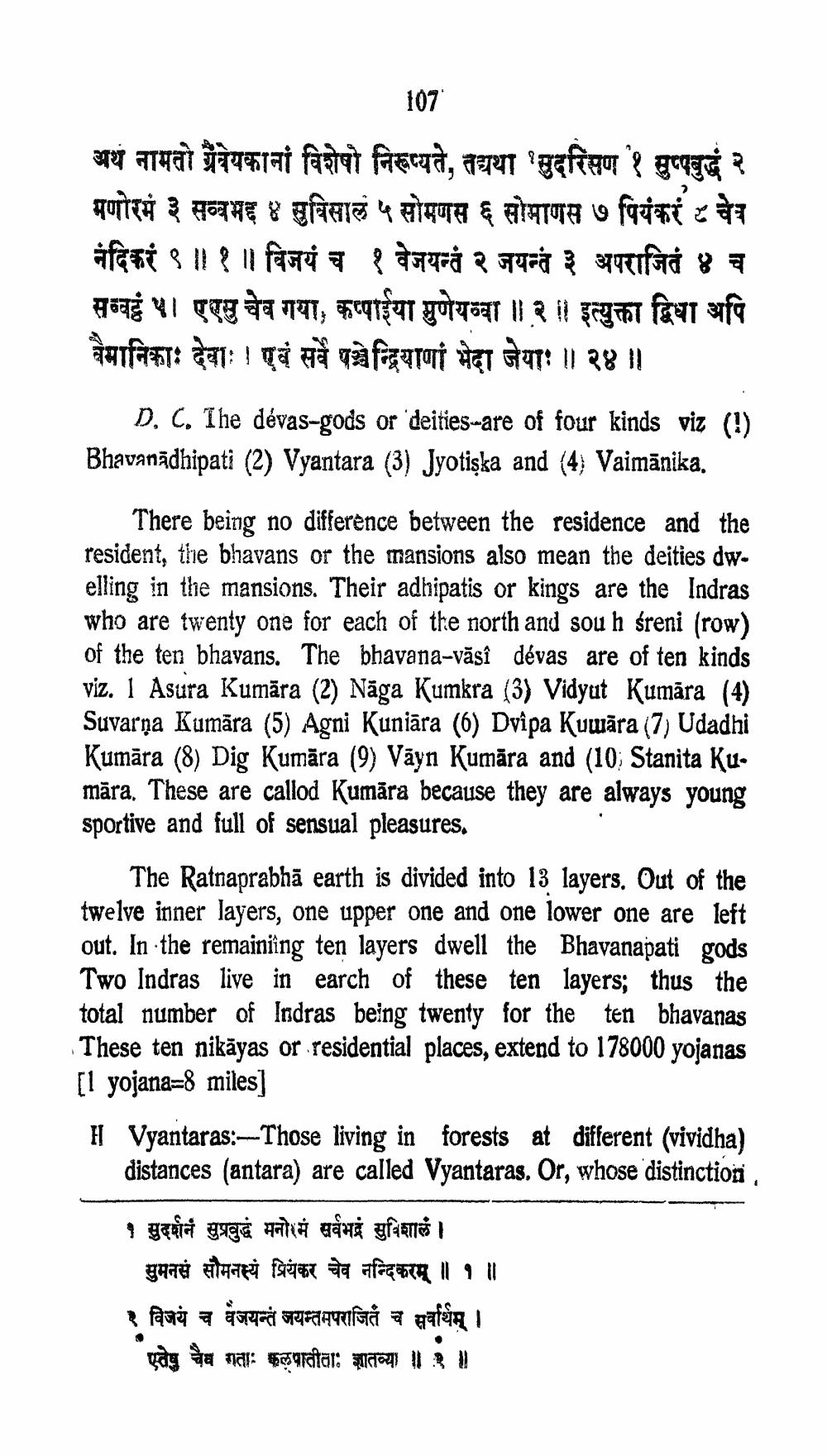________________
___107
अर्थ नामतो अवेयकानां विशेषो निरूप्यते, तद्यथा 'मुदरिसण १ सुप्पबुद्धं २ मणोरमं ३ सयमद्द ४ सुविसाल ५ सोमणस ६ सोमाणस ७ पियंकरं ८ चेव नंदिकरं ९ ॥१॥ विजयं च १ वेजयन्तं २ जयन्त ३ अपराजितं ४ च सम्वटुं ५। एएसु चेव गया, कप्पाईया मुणेयव्वा ॥ २ ॥ इत्युक्ता द्विधा अपि वैमानिकाः देवाः । एवं सर्वे पश्चेन्द्रियाणां भेदा जेयाः ॥ २४ ॥
D. C. The dévas-gods or deities-are of four kinds viz (!) Bhavanādhipati (2) Vyantara (3) Jyotişka and (4) Vaimānika.
There being no difference between the residence and the resident, the bhavans or the mansions also mean the deities dwelling in the mansions. Their adhipatis or kings are the Indras who are twenty one for each of the north and sou h śreni (row) of the ten bhavans. The bhavana-vāsî dévas are of ten kinds viz. 1 Asura Kumāra (2) Nāga Kumkra (3) Vidyut Kumāra (4) Suvarna Kumāra (5) Agni Kuniara (6) Dvipa Kuwara (7) Udadhi Kumāra (8) Dig Kumāra (9) Vayn Kumara and (10; Stanita Ku. māra. These are callod Kumāra because they are always young sportive and full of sensual pleasures.
The Ratnaprabhā earth is divided into 13 layers. Out of the twelve inner layers, one upper one and one lower one are left out. In the remainiîng ten layers dwell the Bhavanapati gods Two Indras live in earch of these ten layers; thus the total number of Indras being twenty for the ten bhavanas These ten nikāyas or residential places, extend to 178000 yojanas [1 yojana=8 miles] HH Vyantaras:--Those living in forests at different (vividha)
distances (antara) are called Vyantaras. Or, whose distinctioni
, सुदर्शनं सुप्रवुद्धं मनोरमं सर्वभद्रं सुविशालं।
सुमनसं सौमनस्यं प्रियकर चेव नन्दिकरम् ॥ १ ॥ १ विजयं च वैजयन्तं जयन्तमपराजितं च सर्वार्थम् । एतेषु चैव गताः कलपातीता: ज्ञातव्या ॥३॥




